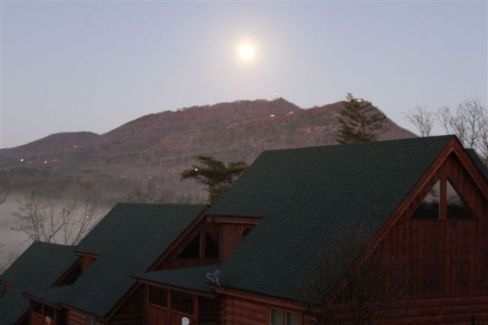The human condition drives us to be participating with our environment. For some of us, that might be eating a fish we caught or savoring the meat we have hunted and labored for. For others it might be hiking and eating wild strawberries and raspberries in an attempt to feel something like the bear feels every fall. To bask in the warmth of the sun, finding contentment in our foraging, listening to the birds, bees and the rustle of the leaves in the trees.
This solitude and peace is the reason why many of us venture out each evening or day off to fish and enjoy the beauty of Creation. However, in a world where our neighbors seem to increase every year, that pursuit to commune with nature is becoming ever increasingly difficult. One must travel farther and keep secrets to places that he or she cherishes not because we don't want to share, but because we are in perpetual fear of losing the place or resource that we so love. It doesn't seem to long ago that our creels and stringers were all full of fish that would be grand catches filling our digital libraries with our most cherished catch of the season. While reading a chapter entitled "Rainbow Trout," by Craig Childs, the yearning and nostalgia for a time past spurs the question: are we doing enough to preserve the aquatic resource and our fishing heritage?
It might be that those volumes of fish are still present, and in places they are, but the traditional flies that use to catch them don't see the same kind of success. The Royal Coachman and Ike's H & L Variant although great flies, might not be the ones sticking out of your hat.
Just the other day, I was fishing one of my secret spots. I was out all day with the hope of feeling the tug of a champion fish. I hooked into two and wasn't quite skilled or patient enough to play these fish my net. It was frustrating and enjoyable, making my day. However, that morning when I arrived I noticed that someone had been there the day before. By the tracks he left, he was a solitary figure that didn't stray very much form his spot. Sure enough that evening as the sun lowered on the horizon a man with two spin cast rods shows up and plants himself on his pre-stomped pad and begins to rig up. The man was from an older generation and had a thick foreign accent. He said very little and made me wonder if he was living in the area or just visiting. I continued to fish and on his third cast he hooked into a great fish, maybe a 24 incher, the fish fought hard but couldn't spit the hook. After the man almost lost his fish I offered to land it for him, he declined and landed it a few minutes later.
The vibe changed instantly when his intentions became clear that he was taking this fish and another home if he could catch it. It took all of my effort to not run over to him and throw his catch back into the river. After all, this is one of my most cherished fishing holes.
As we reflect on these types of events I am reminded of Jared Diamond's book, "Collapse." The story of Easter Island runs vivid through my mind. Societal pressures: Idolatry, Materialism, and Greed all pushed to environmental collapse. Resources are finite. Nostalgia of a past of plenty is real. These places we enjoy are islands of ecological diversity and health. If we continue to accept this growing type of pressure on places that can't handle it, we will have to keep going further until there isn't a further we can reach.
There are acceptable places to harvest your fish or animal. Lakes and rivers that are stocked is one example. High alpine lakes and creeks where there are an abundance of brook trout might be another. But there seems to be a lapse in our fishing community about when it is appropriate to harvest and to release. I don't know if it is a hate of regulation or just a short coming in awareness? Natives and stockers are different, we need to treat them different. I hope we can preserve some of these last great glory holes for future generations.
Maybe, that man needed a meal and he knew a place with a big return? Hopefully he doesn't come back again and again.





